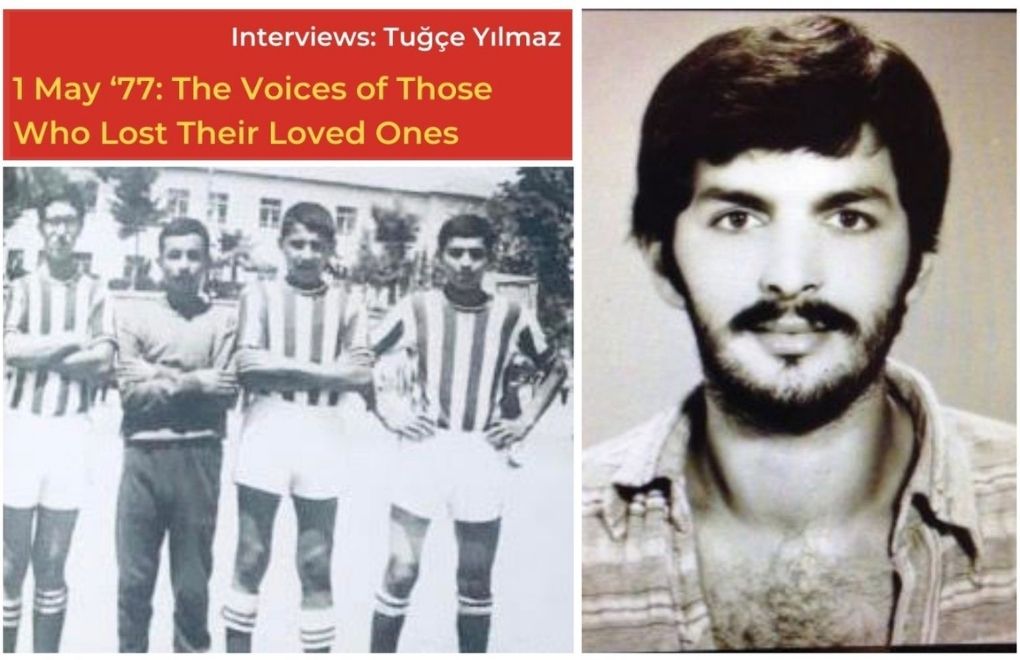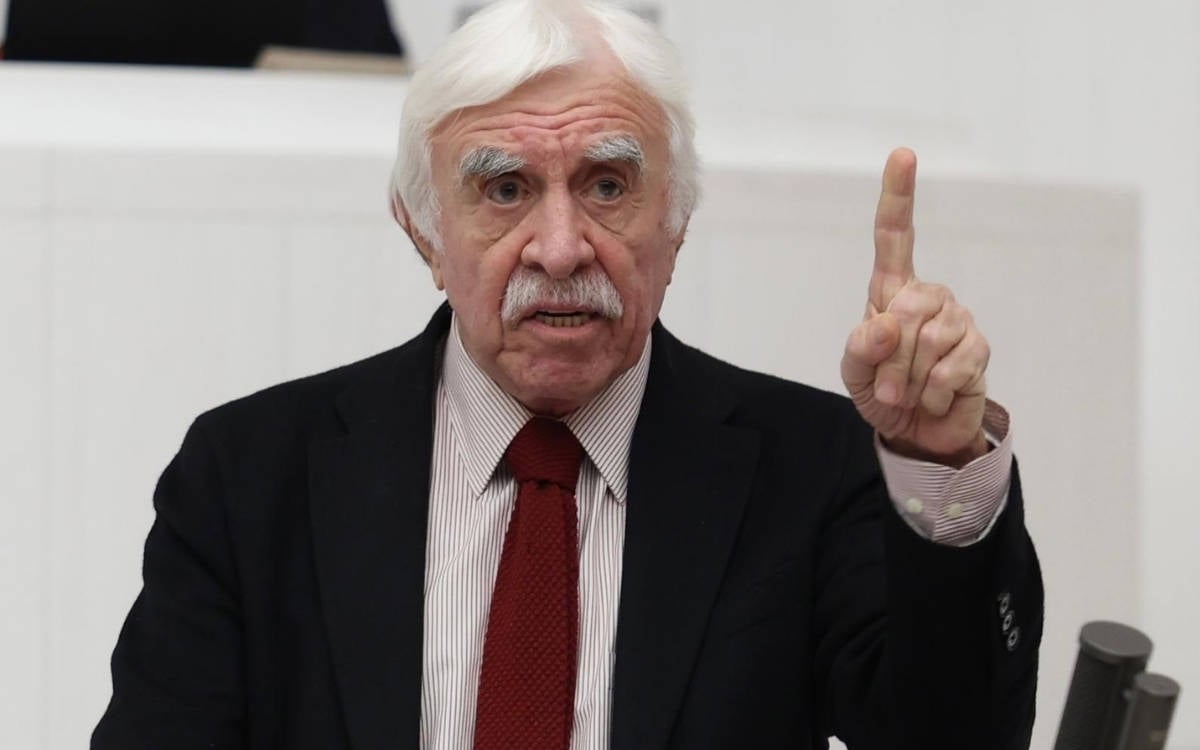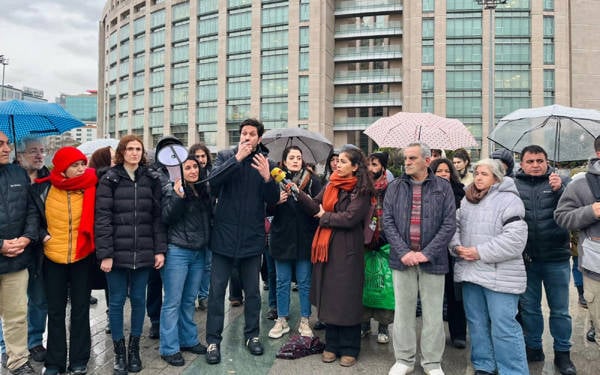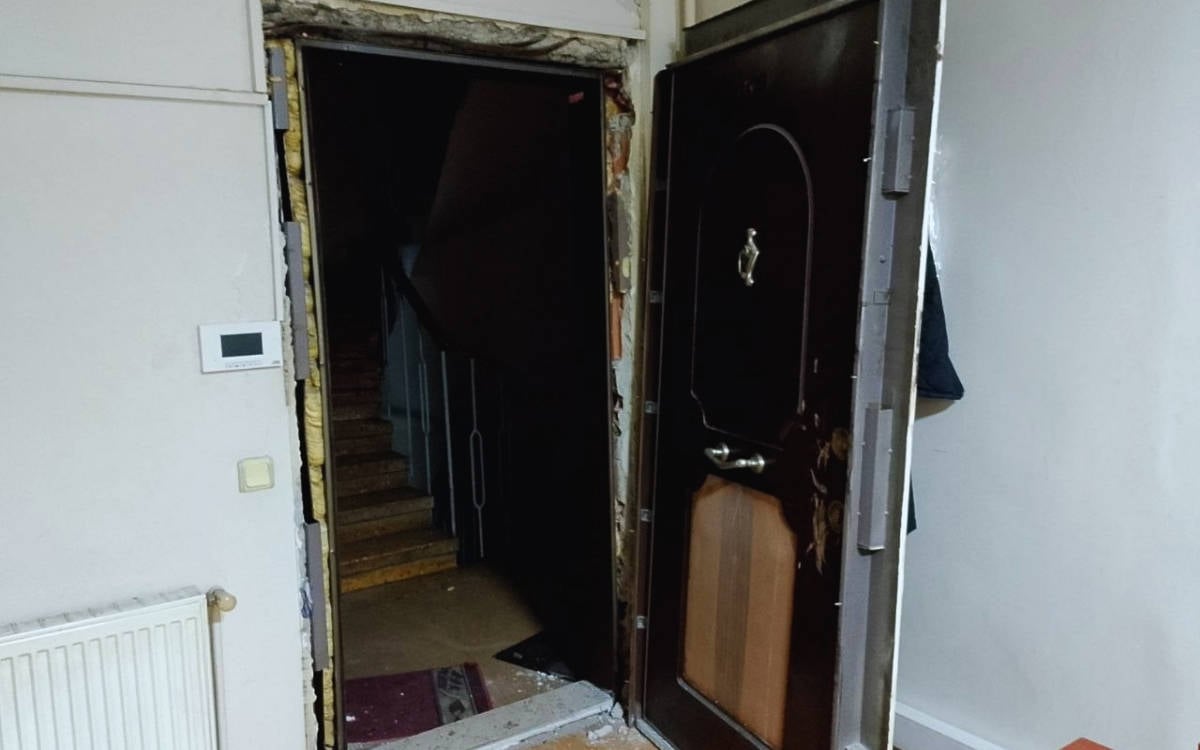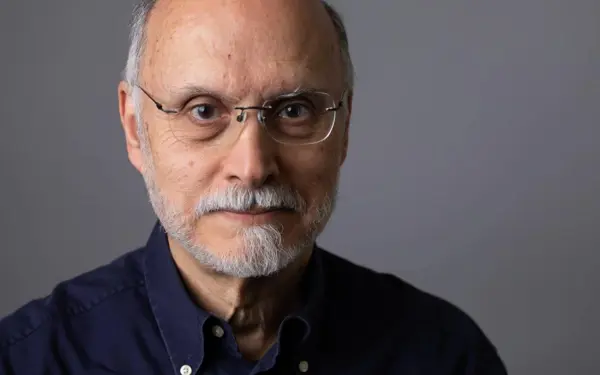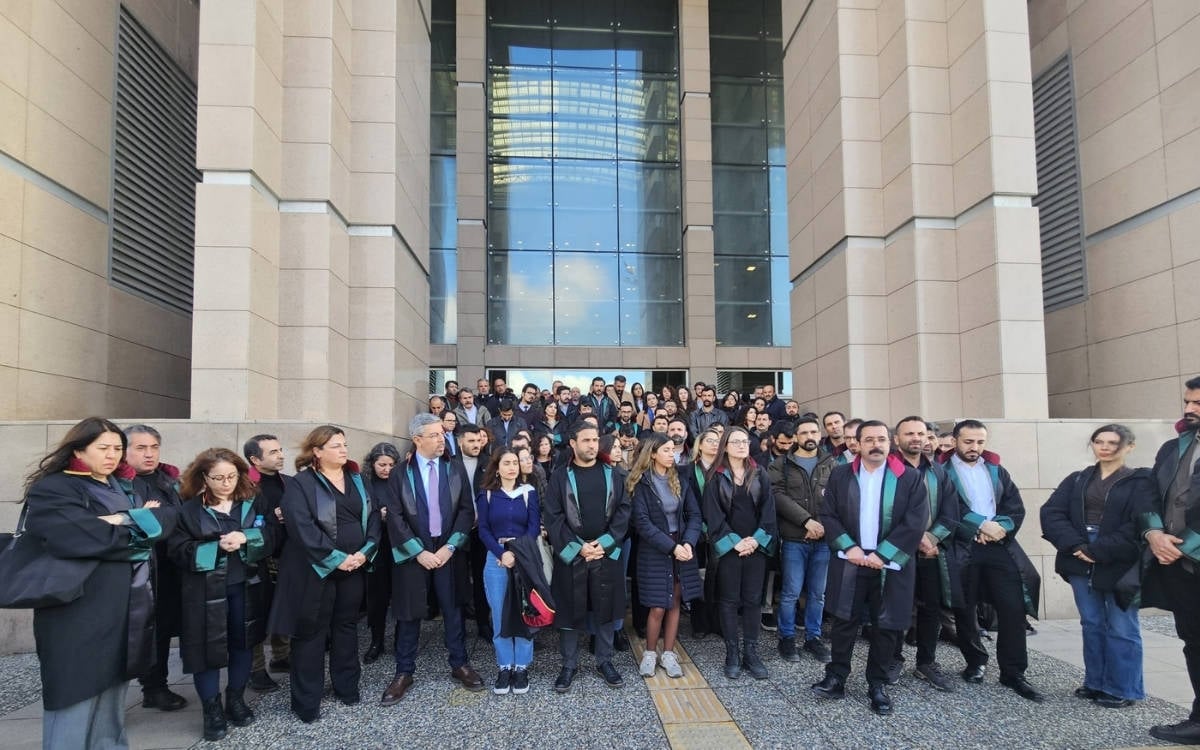Click to read the article in Turkish
"He was studying and working at a factory at the same time. Like me, he made his living working at the factory. He was a revolutionary trying to make his own way in this world, on his own two feet, and who worked to change this world too. I miss him even today." Ali Çetin, friend
"It's obvious who's responsible, but who can you call to account? The government was behind it. Niyazi still lives within us. He's never coming back, but there's nothing to be done about it. Nothing to be done. There's no way there will ever be a trial. There's no way to bring anyone to accountability. What's done is done. And it just keeps on happening." Erol Darı, brother
Niyazi Darı was born in Alanya in 1953. In 1975, he got into the Department of Physical Education at the Ankara Gazi University Institute of Education. The school was under occupation by the Grey Wolves and so, in order to be able to continue his studies there, he became an active member of the Revolutionary Youth Federation of Turkey (Dev-Genç).
He was from the Mısırlıoğulları family, a family known in Alanya for being left-leaning. Niyazi's father hadn't been able to put his other children through school and so he desperately wanted to do this for Niyazi, the third of six siblings. Niyazi's older brother too was a great support to him in this regard.
Left-Back
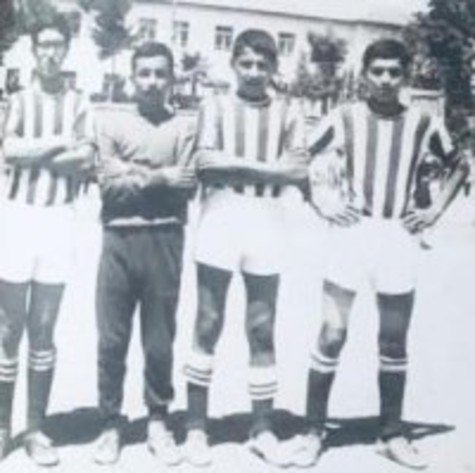
Niyazi Darı loved wrestling, and he also played left-back, wearing number 3, for the Alanya Kale Gençlikspor football team, which was part of the Antalya Amateur League.
On 1 May 1977 he travelled from Ankara to Istanbul together with members of the Association for the Unification and Solidarity of All Civil Servants (TÜM-DER). He marched behind the banner of the Revolutionary Path (Devrimci Yol). He lost his life in Taksim.
After hearing the news on the radio, Niyazi's older brother and relatives had his body brought to Alanya. Although the police tried to stop the funeral, they could not keep hundreds of Niyazi's friends from yelling out slogans and bidding him a final farewell.
About Niyazi Darı
His funeral was one of the most crowded ceremonies ever in the history of Alanya.
When researching Niyazi Darı's much too brief 24-year life story, I came across a news report in the second issue of Revolutionary Path magazine to be published after 1 May 1977. There was also an interview with Niyazi Darı's older brother, Erol Darı, conducted for bianet by Beyza Kural.
I wondered who was with him on the square that day, and what Niyazi Darı's friends had to say about him. Although it did pose a challenge, I managed to reach, via Tuncer Öner, Niyazi Darı's friend Ali Çetin, who lived in the same neighbourhood and worked with him at the time at Kutlutaş Construction. I extend my thanks to them both.
Ali told me about his friend Niyazi Darı, a comrade he still misses, and with whom he shared so much, even if their time together was brief.
Ali Çetin, colleague and friend, tells
We lived in the same  neighbourhood, in Seyranbağları, Ankara. We were both university students, and we also worked together, at the Kutlutaş Machine Industry and Iron Production Factory on the Istanbul Highway. We were studying and working at the same time. We were both welding assistants, so I mean, we were both unskilled labourers.
neighbourhood, in Seyranbağları, Ankara. We were both university students, and we also worked together, at the Kutlutaş Machine Industry and Iron Production Factory on the Istanbul Highway. We were studying and working at the same time. We were both welding assistants, so I mean, we were both unskilled labourers.
I was studying in the Department of Mechanical Engineering at the State Academy of Architecture and Engineering Academy. Niyazi was enrolled at the Gazi Institute of Education.
Niyazi and I met in September of 1976, and in early 1977 we got him hired at the factory where I worked.
We were also both members of the Mineworkers' Union. Niyazi and I were trying to recruit other workers to the union. For as long as I knew Niyazi, he was active in the local neighbourhoods, and at the factories and schools. He had strong social skills, and was an enterprising guy. He was a noble person.
I went to the First of May demonstration in 1977 together with the Mineworkers' Union. I did my best to get Niyazi to join me, but he told me was going to go with the Revolutionary Path, which he belonged to at the time. He marched with his own political organisation.
He was excited
Niyazi was killed by gunfire shot from above. His group was right there when it happened. The Mineworkers' Union group was closer to the podium. Life is, after all, full of coincidences, but I can't help but think that if Niyazi had been with our contingent, he might still be alive today. Of course, that's my wish for him as a friend, it's an assumption. It's your friend and you think, "If only it had happened this way instead."
Despite the dominance of the Mineworkers' Union and the Turkish Communist Party (TKP) that day, Niyazi was excited to be taking his own place on the square.
He'd been actively engaged within his own group in organising for First of May. He'd tried to convince others to take part in the demonstration. Everyone, except for the Maoist organisations, was very excited and festive that day.
A different political path
Niyazi and I would argue about which path to revolution was best, but these arguments were far more sophisticated than the level of debate today.
We debated with one another, we tried to understand and convince each other, because we were from different political organisations. But like I said, these were more debates than arguments, between two comrades headed along the same path but with different preferences when it came to strategy.
That's what we were always talking about, whether we were in the neighbourhood or at school or at Kutlutaş. Niyazi's attitude was such that even though he wasn't aligned with the political path of the Mineworkers' Union and the Turkish Communist Party, he worked together with them, but always trying to convince those whose views diverged from his own.
He was enterprising
He and his fiancée were 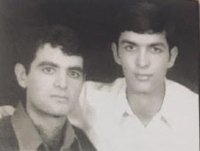 looking for a place to rent together. And we found them one. The people who lived in the neighbourhood where it was were more right-leaning and religious than those in Seyranbağları.
looking for a place to rent together. And we found them one. The people who lived in the neighbourhood where it was were more right-leaning and religious than those in Seyranbağları.
Niyazi, his fiancée, and I went to the house together.
You should have seen that shanty. They really made it someplace special, the way they furnished it and set it all up, it was adorable. I remember that house like it was yesterday. Here's a story I can tell you, to give you an idea about how enterprising Niyazi was:
In just the first couple of weeks after they moved in, Niyazi was already on excellent terms with his landlord and his neighbours.
I knew already of course that Niyazi was an extremely friendly, likeable, enterprising person, but the way he established such good relationships in that neighbourhood in such a short time really impressed me. He really stood out within his group.
The people in his group were generally a bit more distanced from the masses, they were closer to the youth of the time. So for Niyazi to be able to manage his relationships with those people so well, that's not something everyone would have been capable of doing.
But then he had chosen that neighbourhood specifically. We lived in Kurudere, which was largely under the control of revolutionaries. When I told him we should rent him a place in Kurudere, he told me, "Ali, work needs to be done over there too, let's go there."
The funeral
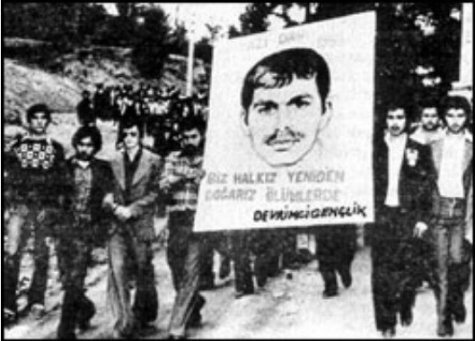
After the First of May demonstrations, Niyazi Darı's body was first transported from Istanbul to Ankara. And then his fiancée, myself, and some other friends went to Alanya to bury him. We waited at the cemetery for a while. There's this cemetery that's surrounded by pine trees and looks out onto the sea, that's where we bid our final farewell to Niyazi.
Fascists harassed us even during the funeral. While we were yelling out slogans, there were fascists just 100 meters from us, yelling out their own slogans.
Niyazi's brother told us that because Niyazi was well known there too, the fascists wouldn't be able to get away with anything. But we were sad, and full of rage, because our friend had been murdered. We thought that if they did try something, we'd take care of it.
His fiancée
Niyazi's fiancée and I kept in touch after he died. But she wasn't open to debating politics the way Niyazi was. She was from the same political organisation as Niyazi. Later we fell out of touch for this reason. I don't recall her name right now, but I can remember her face like it was yesterday.
She was a rather beautiful woman, with sparkling eyes. And Niyazi was a handsome fellow himself. With his stature, the gaze in his eyes, his smile, he attracted attention wherever he went. And they were to be married, like I said, they were engaged.
Niyazi and I were friends for a brief time, but even in that brief amount of time, he and I established a strong bond. Niyazi got on easily with everyone, whether they had a particular political view or not. He was friendly towards people and really put a lot of effort into trying to convince them to join the struggle.
I'm not saying this in order to praise someone who has passed on, I am saying honestly and genuinely that Niyazi was a very different, unique comrade. His death was a great loss, both for society and for me personally.
One thing about that time is that anyone who'd read so much as a book or two saw no harm in engaging in heated revolutionary debates. But Niyazi and I read a lot. We did our research. We were always trying to improve ourselves. We'd read books by Stalin, by Che, and sit and discuss them. That's the kind of wonderful comrade Niyazi was.
He was studying and working at a factory at the same time. Like me, he made his living working at the factory. He was a revolutionary trying to make his own way in this world, on his own two feet, and who worked to change this world too. I miss him even today.
Erol Darı, his brother, tells
He was such a valuable person. Not only for us, but for Alanya too. The teachers and the other students at Alanya high school just loved him. Everyone loved him, he helped everyone out.
Niyazi Darı loved wrestling, and he also played left-back, wore number 3, for the Alanya Kale Gençlikspor football team, which was part of the Antalya Amateur League.
The year he was supposed to graduate, the Demirel government increased the length of schooling from two years to three. Meanwhile he had to work too, because of our economic situation. He worked at the factory at the same time as he was studying.
Mehmet Ali Yılmaz, high-school friend, tells
Mehmet Ali Yılmaz, one 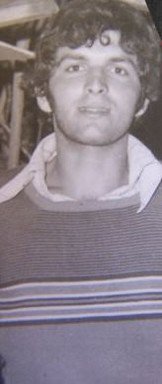 of the leaders of the Revolutionary Path and chair at the time of Dev-Genç, describes Niyazi Darı, who he also went to high school with in Alanya, as, "a dedicated soldier of the Revolutionary Youth movement and struggle."
of the leaders of the Revolutionary Path and chair at the time of Dev-Genç, describes Niyazi Darı, who he also went to high school with in Alanya, as, "a dedicated soldier of the Revolutionary Youth movement and struggle."
"In high school, he was a friend who was left-leaning. He was one of the revolutionaries murdered on Kazancı Slope. He had gotten into the Gazi Institute of Education."
The Gazi Institute of Education was under the occupation of the Grey Wolves, an offshoot of the Nationalist Movement Party (MHP) and they weren't letting anyone outside of their group into the school. Similar occupations of other faculties and schools at the time were supported by the coalition government of the Justice Party (AP), the Nationalist Movement Party (MHP), the National Salvation Party (MSP]), and the Republican Reliance Party (CGP), known as the 1st National Front.
In his piece on anafikir.com, Mehmet Ali Yılmaz reminds readers that in those days, "revolutionary students who were kept from going to school" opposed the occupation by means of both legal measures as well in the form of mass struggle, and says that "Niyazi and other humble revolutionaries like him should not be forgotten." (TY/APA/SD)
About Tuğçe YılmazJournalist, editor, researcher. "1 May 1977 The Voices of Those Who Lost Their Loved Ones / 1 May 1977 and Impunity" she was engaged in this dossier as a researcher, reporter, editor and writer. Her articles, interviews and reports are published in outlets such as bianet, BirGün Book, K24, 5Harfliler, Gazete Karınca and 1+1 Forum. She graduated from Ege University, Faculty of Literature Department of Philosophy. She was born in Ankara in 1991. |
 |
| This text was created and maintained with the financial support of the European Union provided under Etkiniz EU Programme. Its contents are the sole responsibility of "IPS Communication Foundation" and do not necessarily reflect the views of the European Union. |
CLICK - 1 May 1977 e-book is online
The ones who lost their lives on 1 May '77The ones whose loved ones we could talk to: Ahmet Gözükara (34, teacher), Ali Sidal (18, worker), Bayram Çıtak (37, teacher), Bayram Eyi (50, construction worker), Diran Nigiz (34, worker), Ercüment Gürkut (27, university student), Hacer İpek Saman (24, university student), Hamdi Toka (35, Seyyar Satıcı), Hasan Yıldırım (31, Uzel worker), Hikmet Özkürkçü (39, teacher), Hüseyin Kırkın (26, worker), Jale Yeşilnil (17, high school student), Kadir Balcı (35, salesperson), Kıymet Kocamış (Kadriye Duman, 25, hemşire), Kahraman Alsancak (29, Uzel worker), Kenan Çatak (30, teacher), Mahmut Atilla Özbelen (26, worker-university student), Mustafa Elmas (33, teacher), Mehmet Ali Genç (60, guard), Mürtezim Oltulu (42, worker), Nazan Ünaldı (19, university student), Nazmi Arı (26, police officer), Niyazi Darı (24, worker-university student), Ömer Narman (31, teacher), Rasim Elmas (41, cinema laborer), Sibel Açıkalın (18, university student), Ziya Baki (29, Uzel worker), The ones whose loved ones we did/could not talk to: Aleksandros Konteas (57, worker), Bayram Sürücü (worker), Garabet Akyan (54, worker), Hatice Altun (21), Leyla Altıparmak (19, hemşire), Meral Cebren Özkol (43, nurse), Mustafa Ertan (student), Ramazan Sarı (11, primary school student) The ones only the names of whom are known: Ali Yeşilgül, Mehmet Ali Kol, Özcan Gürkan, Tevfik Beysoy, Yücel Elbistanlı The one whose name is unknown: A 35-year-old man |
The voices of those who lost their loved ones: 1 May '77 and impunity
Political panorama of Turkey-1977
Film industry worker Rasim Elmas, 41, died in Taksim
Construction Worker Bayram Eyi, 50, died in Taksim
Teacher Bayram Çıtak, 37, died in Taksim
High School Student Jale Yeşilnil, 17, died in Taksim
Teacher Kenan Çatak, 31, died in Taksim
Teacher Ahmet Gözükara, 33, died in Taksim
Teacher Hikmet Özkürkçü, 39, died in Taksim
Student-laborer Niyazi Darı, 24, died in Taksim
University student Nazan Ünaldı, 19, died in Taksim
Teacher Ömer Narman, 31, died in Taksim
Laborer Ali Sidal, 18, died in Taksim
Counterperson Kadir Balcı, 35, died in Taksim
Student Hacer İpek Saman, 24, died in Taksim
Factory Worker Kahraman Alsancak, 29, died in Taksim
Laborer Hüseyin Kırkın, 23, died in Taksim
Student Ercüment Gürkut, 26, died in Taksim
Public order police officer Nazmi Arı, 26, died in Taksim
Laborer Mahmut Atilla Özbelen, 26, died in Taksim
Factory worker Hasan Yıldırım, 31, died in Taksim
Itinerant salesperson Hamdi Toka, 35, died in Taksim
Security Guard Mehmet Ali Genç, 60, died in Taksim
Factory Worker Ziya Baki, 30, Died in Taksim
Laborer Mürtezim Oltulu, 42, Died in Taksim
Teacher Mustafa Elmas, 33, Died in Taksim
Student Sibel Açıkalın, 18, died in Taksim
Laborer Diran Nigiz, 34, died in Taksim
1 May 1977 & Impunity
'The state is implicated in this crime, perpetrators must be put on trial'
'If you can't find the killers, you can't remove the stain'
'The perpetrators of the 1 May 1977 massacre got away with it'
Remembrance as a matter of dignity and the fight against impunity
Who is hiding the truth and why?





